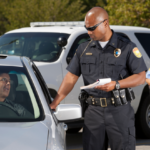Car insurance premiums are influenced by a variety of factors, with one of the most important being your driving history. This is particularly true if there are indications of you being a risky driver, like speeding tickets or car accidents you may have been involved in.
After being involved in an accident, even if you didn’t cause it, you might be left wondering: How much will my insurance increase after an accident? Will my insurance go up if I’m not at fault? How long will an accident affect my car insurance rates?
Keep reading as we address these questions to help you better understand the impact of car accidents on car insurance premiums. By the end, you’ll also get some tips on how to mitigate, or at least counter, rate hikes.
There are two types of car accidents
Before diving into how accidents affect insurance premiums, let’s establish some fundamental concepts. Insurers typically recognize two categories of motor vehicle accidents:
No-fault accidents:
- In states with no-fault insurance laws, drivers generally need Personal Injury Protection (PIP) insurance. This will cover the medical bills and lost wages for the driver and passengers, regardless of who caused the accident. This reduces the need for litigation and speeds up the claims process.
- If medical expenses exceed PIP limits, the at-fault driver’s insurance may cover the remainder. However, even in no-fault states, the at-fault driver’s insurance is responsible for property damage claims.
At-fault accidents:
- Accidents are categorized as at-fault when you are deemed responsible for causing the accident. Your insurance is typically responsible for covering the damages to the other party’s vehicle and any medical expenses.
- When a driver is responsible for an accident, their car insurance pays for damage and injuries. If the fault is shared among drivers, each insurance covers damages based on how much they’re responsible for. Keep in mind that the implications for insurance rate impact will vary between at-fault accidents involving property damage and those involving bodily injuries.
What happens after a car accident?
Being in a car accident, whether minor or severe, can be stressful. Here’s a step-by-step guide to help you navigate the situation calmly and effectively:
Prioritize safety
- Ensure the safety of everyone involved.
- If possible, move to a safe area away from traffic.
- Stay at the scene until it’s appropriate to leave.
Call for help
- Check for injuries and call 911 if anyone needs medical attention.
- Always report the accident to the police to have an official record, even if it’s a minor incident. Avoid handling it “off the record.”
Exchange Information
- Share contact, insurance, and vehicle details with the other driver.
- Write down license plate numbers and the make, model, and color of all vehicles involved.
Document the scene
- Take photos of the vehicles, damages, road conditions, and surrounding area.
- If possible, gather contact information from witnesses.
Avoid admitting fault
- Stay calm and only discuss factual details.
- Avoid making apologies or admitting fault, as it could impact liability.
Notify your insurance provider
- Report the accident to your insurance company as soon as possible.
- Provide them with detailed information about the incident and any damages.
Arrange for towing if necessary
- If your vehicle is not drivable, arrange for it to be towed to a safe location or an approved repair shop.
Report the accident to the DMW
- Some states require you to notify the Department of Motor Vehicles (DMV) about the accident. Check your state’s regulations and filing deadlines.
Consider legal assistance
- If needed, consult an attorney specializing in personal injury or auto accidents. Many offer free consultations and work on a contingency fee basis.
How much does car insurance increase after an at-fault accident?
Car insurance rates typically increase only when a car accident causes damage or injuries to others and only for drivers who bear some or all responsibility for the accident!
It’s important to note that not all increases are immediate. Insurance companies may adjust your rates upon policy renewal rather than immediately after the accident. This delay allows them to assess the full extent of the claim and adjust premiums accordingly.
On average, insurance premiums can increase significantly following an accident. For example, a minor accident might lead to a 20-30% increase in premiums, while more severe accidents could result in higher hikes. Note that certain states have regulations that prevent insurance companies from raising rates for claims below a certain dollar amount.
Rate hikes vary wildly from state to state, as shown in the chart below, sourced from Forbes Advisor with data from Quadrant Information Services.
The average car insurance rate increase after an at-fault accident:
| State | Involves property damage | Involves boldly injuries |
| Alabama | 44% | 43% |
| Alaska | 46% | 53% |
| Arizona | 47% | 48% |
| Arkansas | 47% | 48% |
| California | 72% | 97% |
| Colorado | 35% | 33% |
| Connecticut | 51% | 52% |
| Delaware | 34% | 34% |
| Florida | 38% | 39% |
| Georgia | 47% | 47% |
| Hawaii | 37% | 37% |
| Idaho | 37% | 37% |
| Illinois | 49% | 49% |
| Indiana | 48% | 48% |
| Iowa | 45% | 47% |
| Kansas | 41% | 41% |
| Kentucky | 53% | 53% |
| Louisiana | 48% | 48% |
| Maine | 40% | 41% |
| Maryland | 52% | 52% |
| Massachusetts | 67% | 67% |
| Michigan | 45% | 45% |
| Minnesota | 41% | 42% |
| Mississippi | 46% | 47% |
| Missouri | 36% | 37% |
| Montana | 41% | 41% |
| Nebraska | 48% | 48% |
| Nevada | 43% | 44% |
| New Hampshire | 55% | 55% |
| New Jersey | 42% | 43% |
| New Mexico | 37% | 37% |
| New York | 40% | 40% |
| North Carolina | 79% | 90% |
| North Dakota | 39% | 39% |
| Ohio | 45% | 45% |
| Oklahoma | 44% | 44% |
| Oregon | 42% | 43% |
| Pennsylvania | 47% | 51% |
| Rhode Island | 55% | 45% |
| South Carolina | 39% | 39% |
| South Dakota | 42% | 42% |
| Tennessee | 44% | 45% |
| Texas | 54% | 54% |
| Utah | 44% | 44% |
| Vermont | 47% | 47% |
| Virginia | 45% | 45% |
| Washington | 36% | 37% |
| West Virginia | 41% | 41% |
| Wisconsin | 50% | 50% |
| Wyoming | 31% | 31% |
Will my insurance premium go up if I’m not at fault?
Certain types of car accidents usually won’t make your insurance rates go up. For example, if your car was hit in a hit-and-run, was parked legally and got damaged, or was rear-ended without you being found at fault, these typically won’t affect your premiums.
Claims covered by comprehensive insurance, like a deer running into your car on a country road, a branch falling from a tree during a windstorm, or gravel being sprayed from a passing truck, also won’t usually raise your rates.
But remember, claims you make for this type of damage still get noted in your history. Insurance companies tend to see drivers with many claims as more likely to have future ones, which might mean higher premiums down the line.
Still, increases that may come from a history of no-fault claims are typically much less severe compared to those originating from at-fault accidents. And some states have regulations that limit rate hikes for these types of no-fault claims. See more about why insurance rates might go up.
How long do I pay more for car insurance after an accident?
When do accidents disappear from insurance records? Typically, car insurance rate hikes due to accidents stay on your bill for three to five years. During this time, insurers view you as a higher-risk driver due to your recent accident history. The duration can vary based on the severity of the accident and your insurance company’s policies.
To have an at-fault accident removed from your insurance record, you generally need to maintain a clean driving history for several years. Insurance companies periodically review driving records, but they usually only go back three or four years, so once the accident falls outside the review window, its impact on your rates diminishes.
How can I protect myself from an accident-related rate increase?
One of the best things you can do — besides driving carefully and defensively — is to choose an insurance provider that offers Accident Forgiveness.
Accident forgiveness programs are becoming more common among insurance companies, both large and local. They’re especially valuable if you’re worried about your rates going up after an accident. Typically, these programs protect only your first at-fault accident from impacting your premiums.
Not every insurer offers this perk, though. Some include accident forgiveness insurance for free as a reward for safe driving and loyalty over the years, while others offer it as an optional endorsement. Of course, you have to have this option in place before the accident occurs! Be sure to ask your insurance agent about it.
How can I reverse a rate increase after an accident?
While accidents can lead to rate increases, there are proactive steps you can take to minimize their impact:
- Shop Around: Compare quotes from different insurers to find the best rate. We can help.
- Take on a Higher Deductible: Consider increasing your deductible to lower monthly premiums, but make sure you can afford the higher out-of-pocket cost if you need to file a claim. Here’s how deductibles work.
- Explore Discounts: Inquire about discounts for bundling home and auto policies or discounts for taking safe driving courses.
- Life Changes: Certain life events — like moving, getting married, or improving your credit score — can positively impact your insurance rates over time.
- Regular reviews: As your driving record improves, be proactive! Review your insurance options every year to potentially get lower rates.
- Change cars. Some cars cost more to insure than others. See what’s generally most affordable.
Accidents happen. But so does better car insurance!
If your car insurance premium has increased because of an accident — or even if you were involved in an accident that wasn’t your fault — it might be time to consider a change.
Facing a premium increase isn’t the end of the road. To find the best insurance options for you, reach out to the car insurance experts at Guided Solutions. We’ll do all the research and legwork, giving you options that fit your needs, budget, and situation.
Fill out our online quote form or call (833) 791-4719 for immediate assistance.









